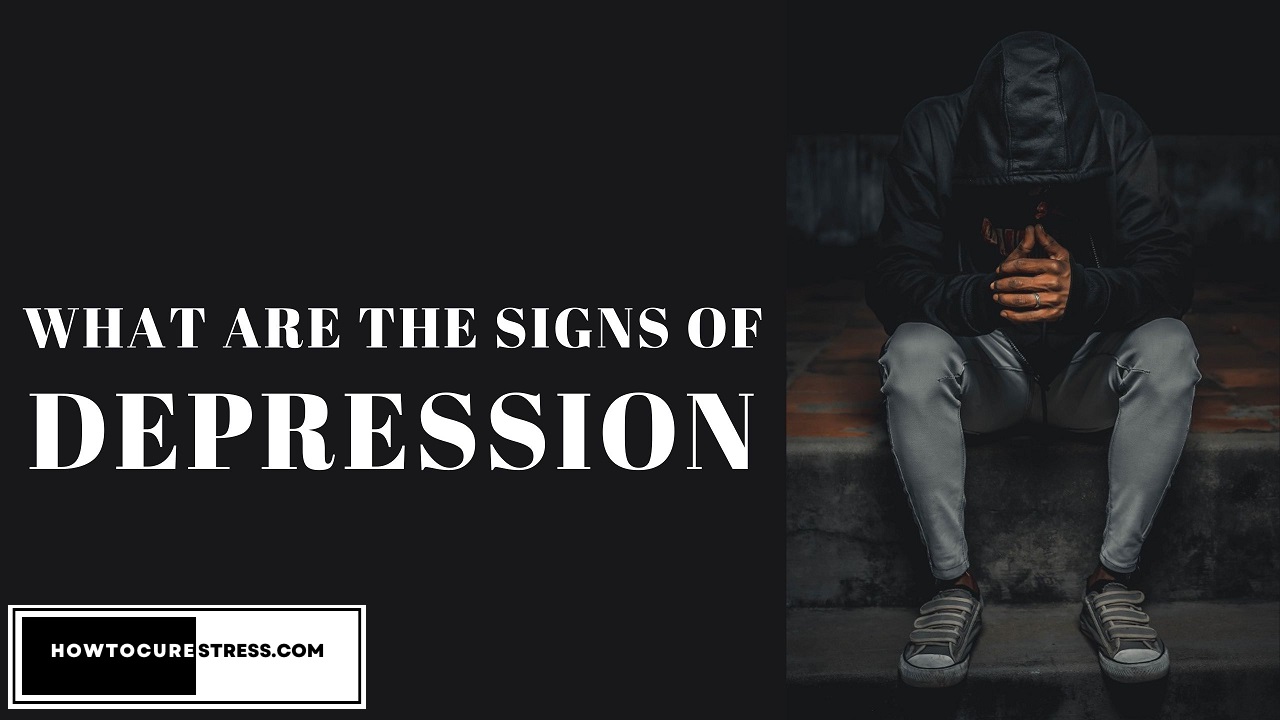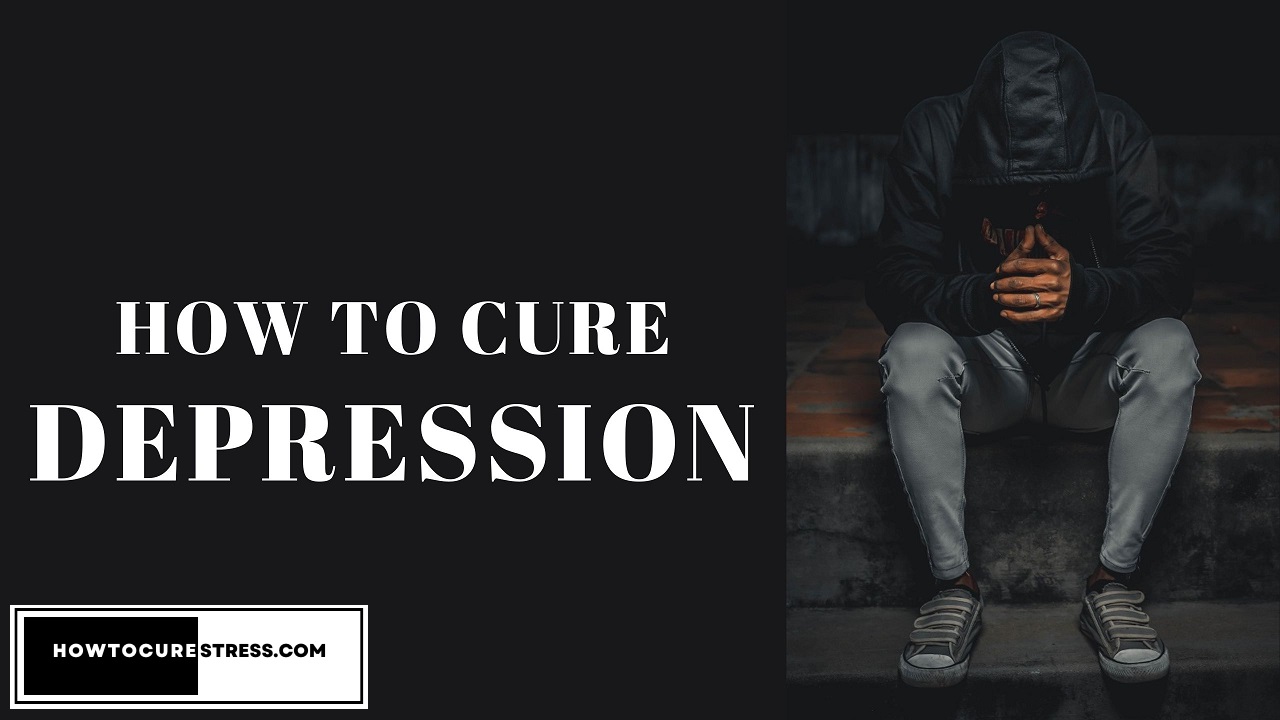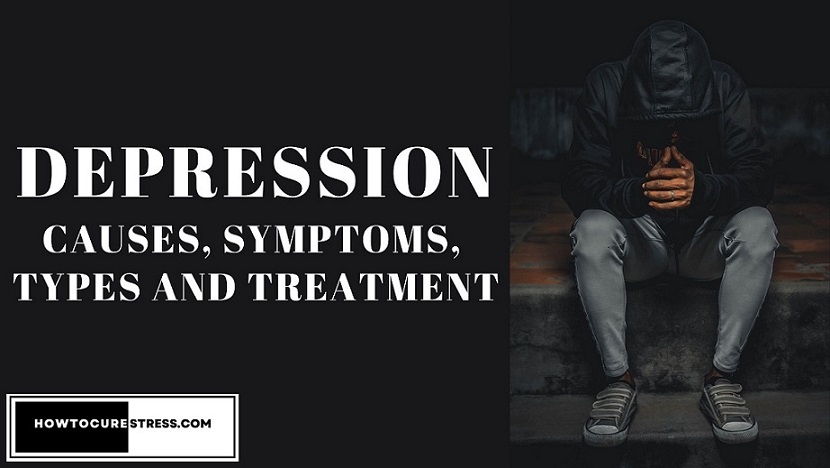What is Depression – Causes, Symptoms, Types and Treatment
Depression is a mental health disorder characterized by the persistent feelings of hopelessness, sadness, and a loss of interest or pleasure in the activities.
It’s more than just a temporary feeling of the sadness or “the blues.” Depression can also may affect a person’s thoughts, behavior, feelings, and overall well-being.
What Causes Depression?
Common symptoms of depression include:
- Anxiety, persistent sadness, or an empty mood.
- Feelings of hopelessness or pessimism.
- Loss of interest or pleasure in the hobbies and activities.
- Fatigue or loss of the energy.
- Difficulty in concentrating, remembering, or making decisions.
- Excessive sleeping or Insomnia.
- Changes in appetite and weight (either increased or decreased).
- Irritability or Restlessness.
- Physical symptoms like stomachaches, headaches, or chronic pain.
- Thoughts of death or suicide.
It is important to note that not everyone with the depression experiences all of these symptoms, and the severity and duration of the symptoms can vary from person to person.
Causes for depression may be able to cause by a combination of the biological, environmental, genetic, and psychological factors. Some common risk factors for the depression include a family history of depression, major life changes, certain medical conditions, or traumatic events, stressors, and certain medications.
If you yourself or someone you know is experiencing the symptoms of depression, it is crucial to seek the professional help. Treatment options for the depression may include therapy (like for example cognitive-behavioral therapy or interpersonal therapy) and medication (such as antidepressants).
Support from the loved ones and lifestyle changes (e.g., healthy diet, exercise, stress reduction), and self-help strategies can also play a vital role in managing depression.
What are the types of depression?
Clinical depression: also known as a major depressive disorder (MDD), that is a mental health condition characterized by the persistent feelings of sadness, loss of interest or the pleasure in activities, and a range of physical and emotional symptoms. It can significantly affect a person’s daily functioning and quality of their life.
Persistent depressive disorder: PDD previously known as dysthymia, is a chronic form of the depression. Individuals with the PDD experience a depressed mood most of the time for at least 2 years, along with the other symptoms such as difficulty concentrating, low self-esteem, and changes in appetite or sleep.
Bipolar disorder: also called a manic-depressive illness, it is a mood disorder characterized by the extreme shifts in the mood, energy levels, and in activity levels. It consists of alternating the episodes of mania or hypomania (elevated mood and excessive energy) and the depression.
Bipolar II disorder: is a subtype of the bipolar disorder in which individuals experience the episodes of major depression and hypomania (a less severe form of mania). Unlike bipolar I disorder, individuals with bipolar II disorder do not experience the full-blown mania.
Postpartum depression: PPD is a type of the depression that occurs after the childbirth. It is characterized by the feelings of anxiety, sadness, and fatigue that can interfere with the mother’s ability to care for herself and the baby. PPD may be triggered by the hormonal changes, sleep deprivation, or some other factors.
Postnatal depression: is another term used to describe the depression that occurs after the childbirth. It is essentially synonymous with the postpartum depression and refers to the same condition.
Seasonal depression: formally known as the seasonal affective disorder (SAD), is a type of the depression that typically occurs during the certain seasons, most commonly in the fall and winter months. Reduced exposure to the sunlight is believed to be a contributing factor to the development of SAD.
Manic depression: is an older term for the bipolar disorder. It reflects the historical understanding of the disorder as involving alternating periods of the mania and depression. However, the term “bipolar disorder” is now more commonly used in the clinical settings.

What are the Signs of depression?
Here you will know about what are the symptoms of depression?
The signs of depression can vary from person to person, but here are some of the common indicators that someone may be experiencing in depression:
Persistent sadness or low mood
A person with the depression may feel sad, empty, or hopeless most of the day or you can say nearly every day. This sadness is often unrelated to the specific events or situations.
Loss of interest or pleasure
They may lose the interest in hobbies or activities they once enjoyed. They may no longer find the pleasure in activities that used to bring them joy.
Changes in appetite or weight
Depression can cause the significant changes in the appetite, leading to either a significant increase or decrease in the weight. Some individuals may experience a weight loss and loss of appetite, while others may gain weight and be overweight.
Sleep disturbances
Depression can affect the sleeping patterns. Some people may experience insomnia, finding it difficult to fall asleep or to stay asleep. Others may sleep excessively and have difficulty getting out of the bed.
Fatigue or loss of energy
A person with the depression may feel tired and lacking energy, even after the minimal physical or mental exertion. Simple tasks may feel overwhelming or exhausting.
Difficulty concentrating or making decisions
What depression is, it impair the cognitive functioning, making it challenging to remember details, concentrate, or make decisions. This cognitive fog can interfere with the work, school, or in daily activities.
Feelings of worthlessness or guilt: Individuals with the depression often experience excessive or irrational feelings of the guilt or worthlessness. They may criticize themselves harshly and feel responsible for the things that are beyond their control.
Restlessness or irritability: Some people with the depression may exhibit signs of agitation, restlessness, or irritability. They may have a low tolerance for frustration and become easily agitated by the minor things.
Physical symptoms: Depression can be manifest in the physical symptoms such as headaches, body aches, digestive problems, and chronic pain without an apparent cause.
Thoughts of death or suicide: In severe cases, the individual human with depression may have recurrent thoughts of the death or suicide. They may express feelings of hopelessness, and express a desire to die or engage in self-destructive behaviors.
It is important to note that the experiencing one or more of these signs does not necessarily mean someone has a depression. A professional mental health evaluation is needed to be provided with an accurate diagnosis.
If you yourself or someone you know is experiencing these symptoms, then it’s crucial to reach out to the healthcare professional for the proper assessment and support.

How to Cure Depression?
Depression is a very complex mental health condition, and there is no one-size-fits-all cure. However, there are some effective treatments and strategies that can help manage and alleviate the depression symptoms.
Here are some approaches that can be helpful in the treatments for depression:
Seek professional help: Start by consulting with a mental health professional, such as a psychiatrist or a psychologist, who can diagnose the depression and recommend you an appropriate treatment options. They may suggest the therapy, medication, or a combination of the both, based on the severity and specific needs of the individual.
Therapy: In depression, different types of therapy can be effective in treating the depression. Cognitive-behavioural therapy (CBT) is a very common approach that helps individuals identify and change their negative thought patterns and behaviours associated with the depression. Other types of therapy is like interpersonal therapy (IPT) or psychodynamic therapy, may also be beneficial in this situation.
Medication: Antidepressant medications can be prescribed to patients by a psychiatrist to help manage the depression symptoms. It is important to note that medication should be taken under the guidance and the supervision of a healthcare professional, as they can have some side effects and require proper careful monitoring.
Lifestyle changes: Making positive changes in the daily routine and habits can have a significant impact on the depression.
These may include:
Engaging in regular exercise: Physical activity has been shown to improve your mood and reduce the symptoms of depression. Aim for at least 20-30 minutes of exercise almost every day.
Establishing a healthy sleep routine: Prioritize getting proper and enough sleep and aim for consistent sleep and wake times. Create a relaxing bedtime routine and ensure your sleep environment is conducive to rest.
Eating a balanced diet: A healthy diet rich in vegetables, fruits, whole grains, and lean proteins can support your overall health and well-being. Avoid excessive consumption of the sugary and processed foods (transfat), as they can negatively impact the patient’s mood.
Avoiding alcohol and substance abuse: Alcohol and drugs can worsen the depression symptoms. So it is important to limit your drinks or avoid their use, especially if you are taking medication for the depression treatment.
Building a support system: Reach out to trusted family members, friends, or support groups who can provide you with emotional support and understand you and your problem. Social connections and a strong support network are very important in managing depression.
Self-care: Engage in those activities that you enjoy and that promote self-care. This can include relaxation techniques (such as meditation or a deep breathing exercise), hobbies, journaling, or spending time in the nature.
Monitor and challenge negative thoughts: Depression generally involves negative and self-critical thinking patterns. Practice self-awareness and challenge your negative thoughts with more realistic and with positive alternatives. This can be done in therapy or through your self-help resources.
Remember, overcoming depression takes some time, and what works for a person may not work for another patient. It is important to be patient, seek professional guidance, and engage in a comprehensive treatment plan made to your specific needs.
Faqs:-
What are three strategies for coping with depression?
Three strategies for coping with depression are:-
- Talk to Therapist
- Boost you self-confidence
- Stick to your schedule at any cost
What are the 4 major types of depression?
- Persistent Depressive Disorder
- Bipolar Depression
- Postpartum Depression
- Seasonal Affective Disorder
What are the main 3 symptoms of depression?
- Major depression
- Perinatal depression
- Persistent depressive disorder
What is one main cause of depression?
- Stress daily routine life
Medication for Depression
Medication for the depression is vary from one person to other. So it is better to chec with doctor about this.
What is Beck depression inventory?
The BDI is a 21-item, which is self-report rating inventory that measures the characteristic attitudes and the symptoms of depression (Beck, et al., 1961).
References:-
Thanks for visiting How To Cure Stress

